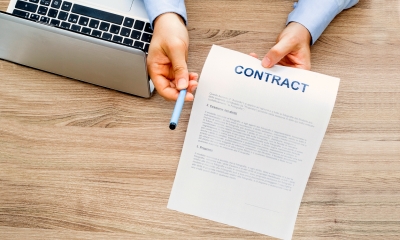
Most people will encounter various problems at work at some point during the course of their employment. The types of issues can range from bullying and discrimination to health and safety concerns. If you have a problem or want to make a complaint, you need to know the best way to deal with it
Do you need to raise a grievance?
A 'grievance' is essentially any problem, complaint or concern you have at work. Common causes of workplace grievances include:
- disputes relating to terms and conditions of employment;
- health and safety concerns;
- bullying, harassment and workplace stress;
- changes to working practices;
- changes to your position or the structure of an organisation;
- illegal discrimination (eg on grounds of race, sex, age etc).
In some cases, you may not feel the need to do anything: for example, if there was a one-off problem which has already been dealt with. But if you want the management to take action, then you have to let them know.
Letting a problem continue without doing anything is not usually a good idea:
- The problem is likely to carry on, or get worse.
- If you do nothing about changes to working practices, or your contract, you may be seen to have accepted the changes and could later lose the right to complain about them.
- If you end up wanting to make a complaint to an employment tribunal about the way you have been treated, it is best to show that you have followed your employer's grievance procedure. Otherwise, even if you win at the tribunal, any compensation can be reduced by up to 25%.
Formal or informal grievance?
Most problems at work are solved by an informal chat with your line manager or HR department. Make sure that you keep a record of any informal discussions as well as the outcome, to use as evidence in case you decide to make a formal complaint later. Your grievance might include a series of smaller incidents that happened earlier on.
If the grievance concerns a serious issue, or if an informal approach does not work, you will need to follow your company's formal grievance procedure. This sets out the steps that you need to take when raising a grievance at work. The process can differ between companies, but there are some common features:
- Who to contact in the first instance with your grievance.
- Writing a formal letter of grievance setting out your concerns.
- Meeting with your employer to discuss the issues.
- How to exercise your right of appeal from an initial decision.
Your company grievance procedure may be included in your company handbook, HR manual or employment contract. Employers are not obliged to provide you with a detailed grievance procedure. But they must at least at least provide you with a 'written statement of employment particulars' which includes who to go to with a grievance and how to complain about the way a grievance is handled. You should have been provided with this written statement within two months of starting your employment.
If your employer does not have a grievance procedure, you should write a formal grievance letter anyway and give it to your manager and the HR department (if there is one).
Raising a formal grievance
Your formal letter of grievance should include full details of your grievance, including the times and dates of any relevant incidents. You can also specify how you would like your employer to resolve your grievance.
A formal grievance letter will normally lead to an official meeting. This should be set up by your employer as soon as possible - preferably within five working days of receiving your letter. The purpose of the meeting is to establish the facts of your grievance and try and find a solution. You have the right to be accompanied at the meeting by a work colleague or a trade union official or rep.
Your employer must write to you, without any unreasonable delay, specifying any action they intend to take to address your grievance. They should also inform you of your right to appeal their decision.
Grievance problems
In most cases, your employer should deal with a formal or informal grievance fairly to resolve the problem. If you aren't happy with the action they plan to take, you can appeal the decision. Again, you should do this in writing.
If a problem continues regardless of your complaints, you may feel that you have no choice but to resign and claim constructive dismissal. You should take legal advice before doing so.
You may be reluctant to make a complaint in the first place if a problem is caused by your supervisor or manager. This can be made more difficult if he or she is the person you are expected to raise the grievance with. In such situations, you may be justified in not raising a grievance and still claiming constructive dismissal, although again, legal advice should be sought beforehand.
It's worth noting that the law can protect you against being victimised for raising a legitimate grievance in relation to a discrimination matter. If you are being unfairly treated, you may want to take legal advice.



